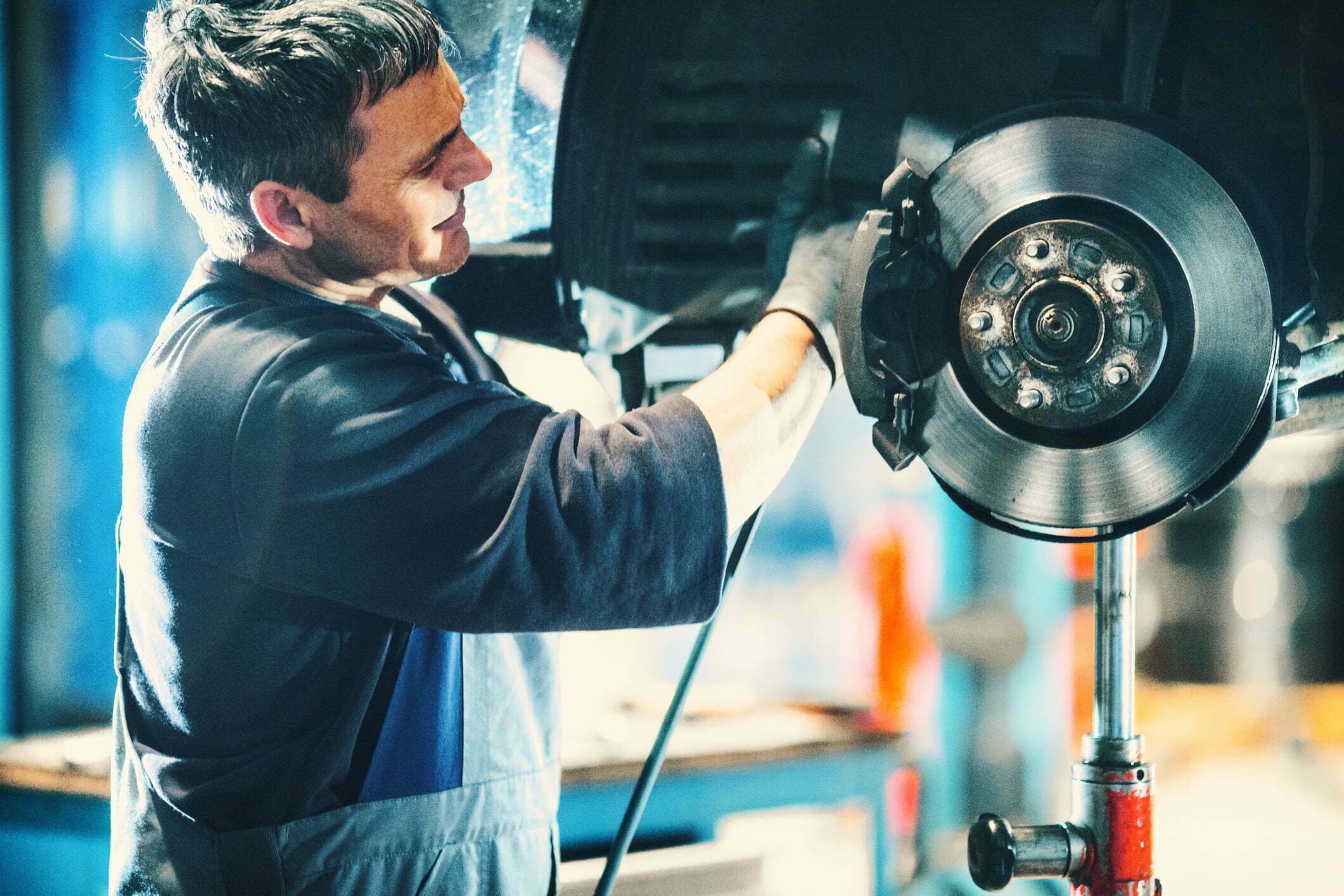At risk of stating the bleeding obvious, brake pads are important. So, the fact that you’re wondering how long do brake pads last is a good thing. You should be thinking about your brakes and what condition they’re in because they’ll determine what condition you’re in when the ride is over.
The answer to your question is 15,000 kilometres to 70,000 kilometres. Probably not the specific answer you were hoping for but, as you’ll find out if you keep reading, there are a couple of factors that determine how long your brake pads will last.
Why do brake pads wear?
The best way to answer this is to briefly explain how they work. When you put your foot on the brake pedal, calipers (adjustable clamps) squeeze brake pads against brake discs, also known as rotors (kind of look like metal Frisbees). When the pads are pressed against the discs, friction occurs, which is what slows your car down. Of course, the result of friction is wear and tear. Eventually, your brake pads will wear out and need to be replaced. It’s not something you’re doing wrong (unless they wear out quickly), it’s just the nature of their job.
How can I make my brake pads last longer?
Slow down
If you drive fast, you’ll either have to brake harder or for longer. Brake harder, the brake pad will be squeezed with more force against the brake disc, increasing friction and wear. Brake for longer, the brake pad will be squeezed for an extended period of time against the brake disc, again increasing wear.
Sometimes, we can’t avoid braking hard; that’s the reality of driving in dynamic, real-world places that involve other people, cars and objects. But we can drive at a sensible pace which means when predictable, foreseeable things occur – like a light turning orange or other cars slowing down for pedestrians – we don’t have to jam our foot in to the brake pedal.
Engine braking
Ever seen those signs in small country towns asking trucks to avoid engine braking? This involves changing down through the gears to slow down instead of using the brakes. The rational is that it avoids wearing out the brake pads. It also produces lots of noise as the gears transition down into higher revs, which is why small towns don’t like it, especially considering lots of trucks are on the roads at night.
If you want to increase their longevity, engine braking is something to consider. Keep in mind, however, that while you won’t be wearing down your brake pads, you will be wearing down the clutch. When it comes to cars, there’s always friction somewhere.
Move somewhere flat
There are so many reasons why you’d want to live in Melbourne over Sydney already, but here’s another one for you. Melbourne, compared to our northern neighbour, is flat(ish). Constantly having to go up and down means more work for your brakes (and clutch). So avoid all those hills and one-way streets and live where it’s easier on your beloved car.
Get your brake pads checked at BM Tech and avoid the squeal
Your brake pads need to be in working order. If they aren’t in good condition, you won’t be able to stop effectively. Subconsciously, we’re always judging the distance between ourselves and the car in front based on what we believe our stopping distance to be. Of course, the stopping distance is based on functioning brakes. Worn brake pads do not equal functioning brakes.
Also, if they wear down to their metal backing plate, you’ll do serious (and expensive) damage to other components of your car.
Get your brake pads replaced at BM Tech and you also won’t have to put up with that spine-tingling squeal new pads can sometimes emit. This is because we use two particular products on new brake pads that prevent this from happening. Check out this video to see how they work.
